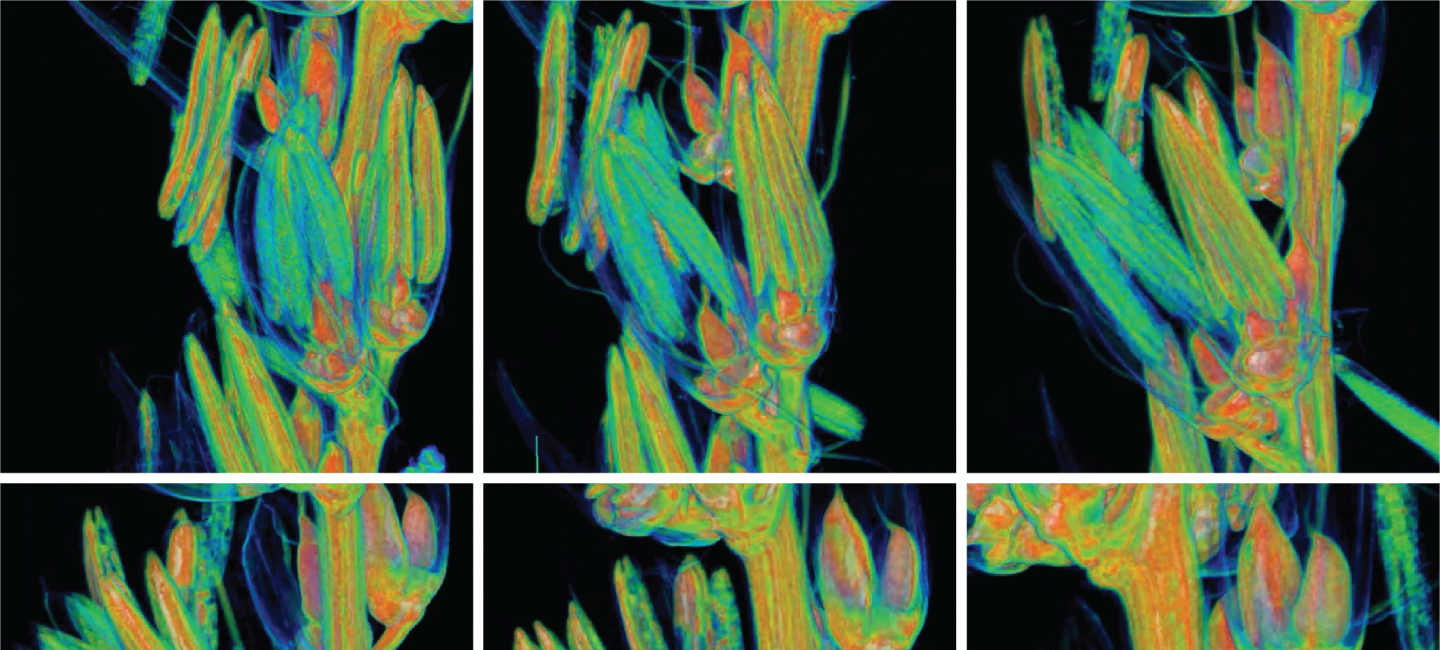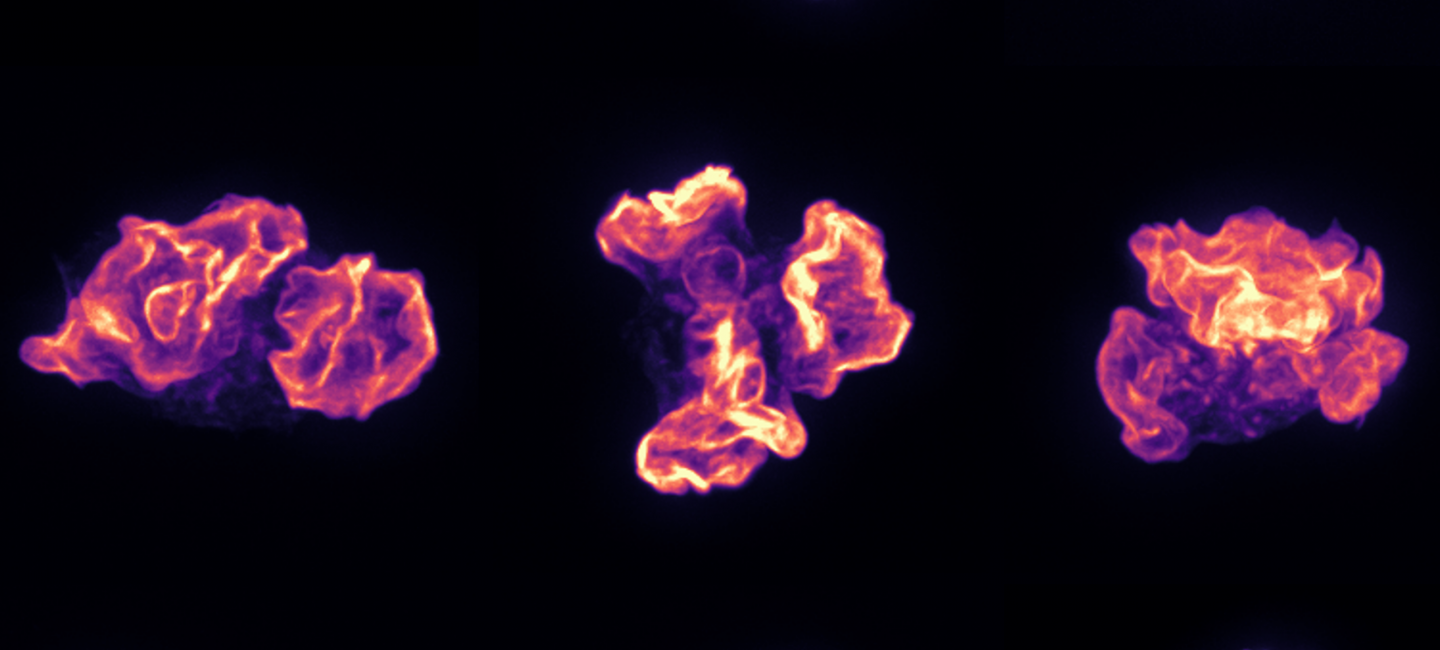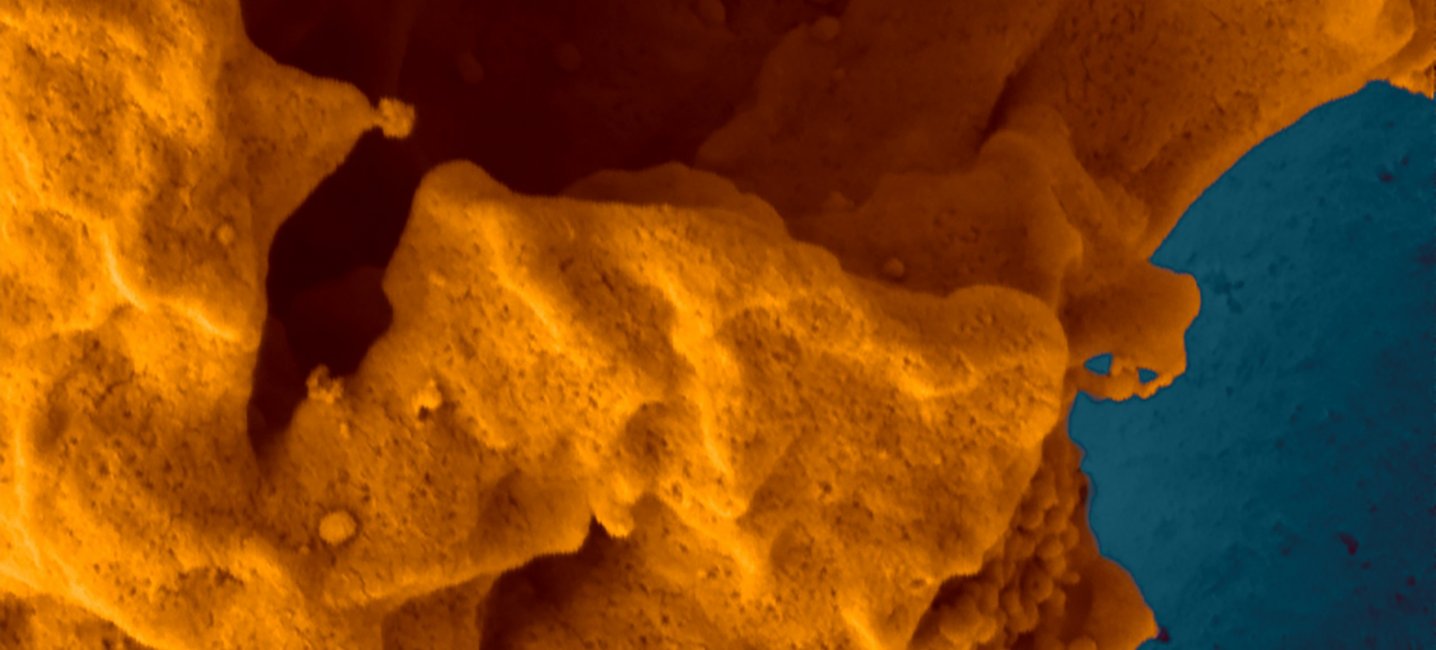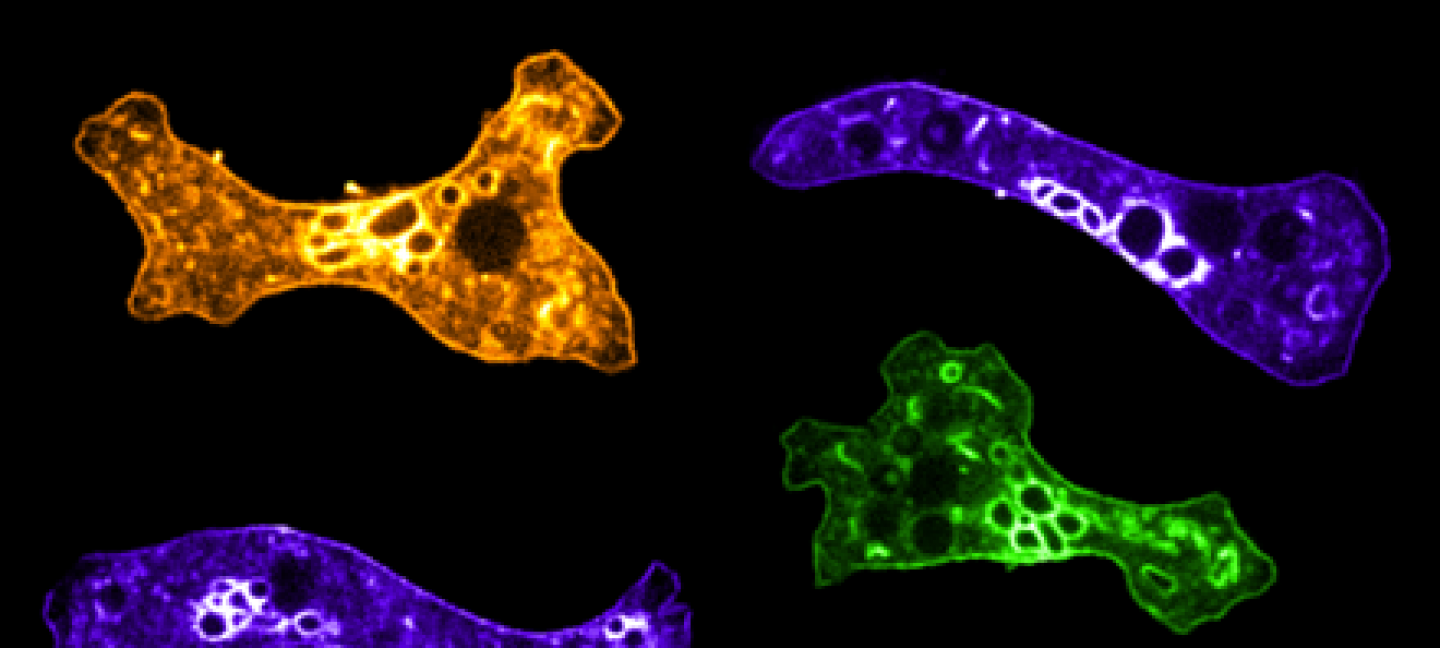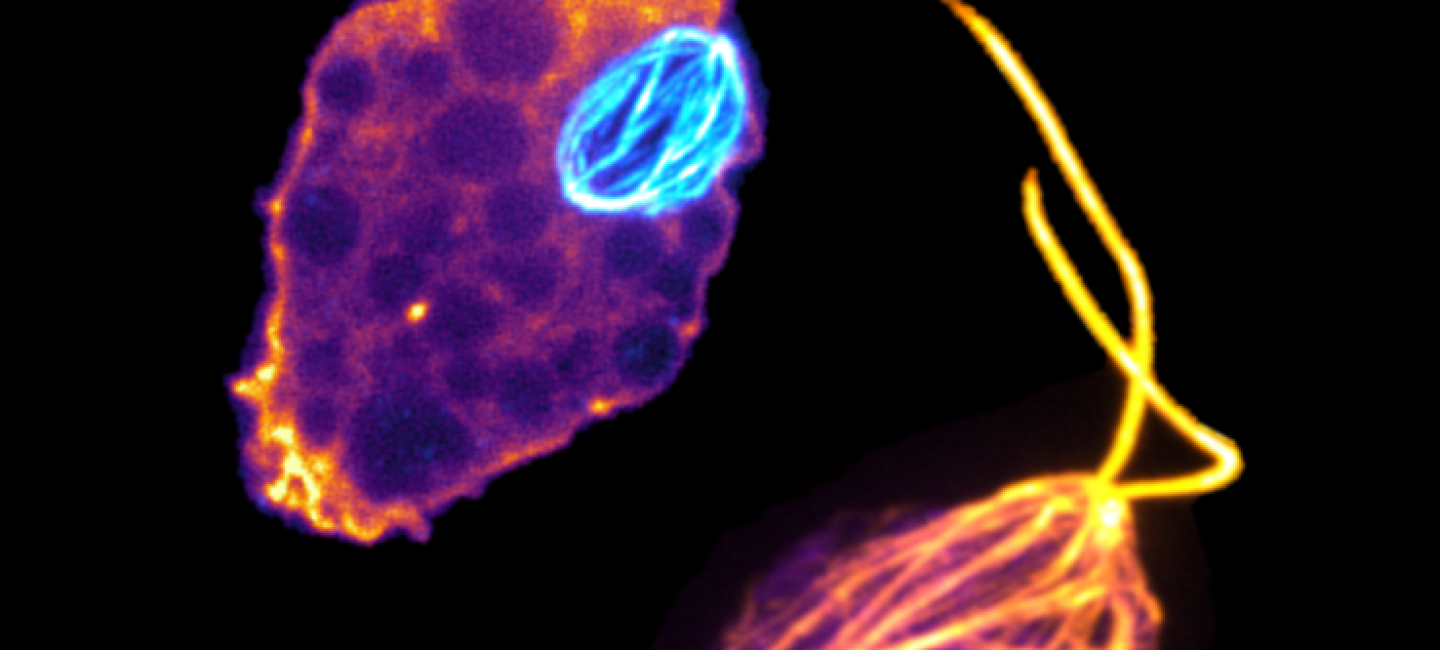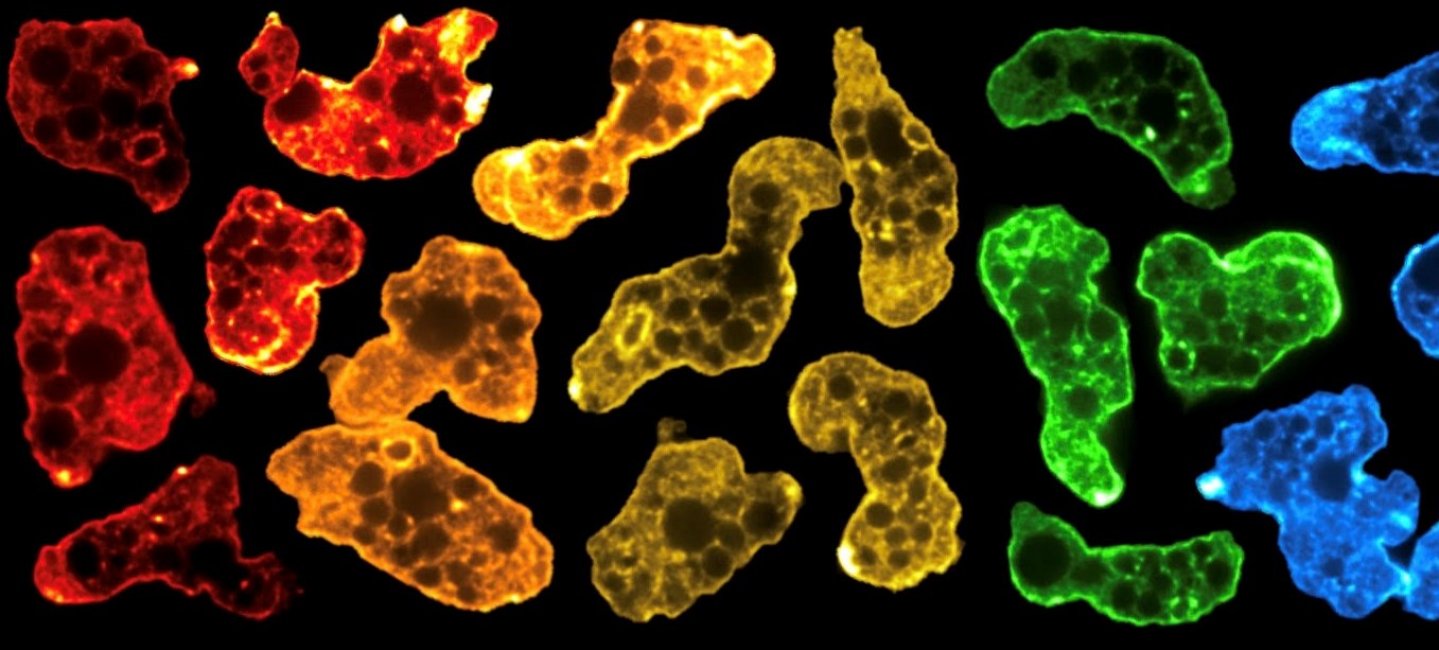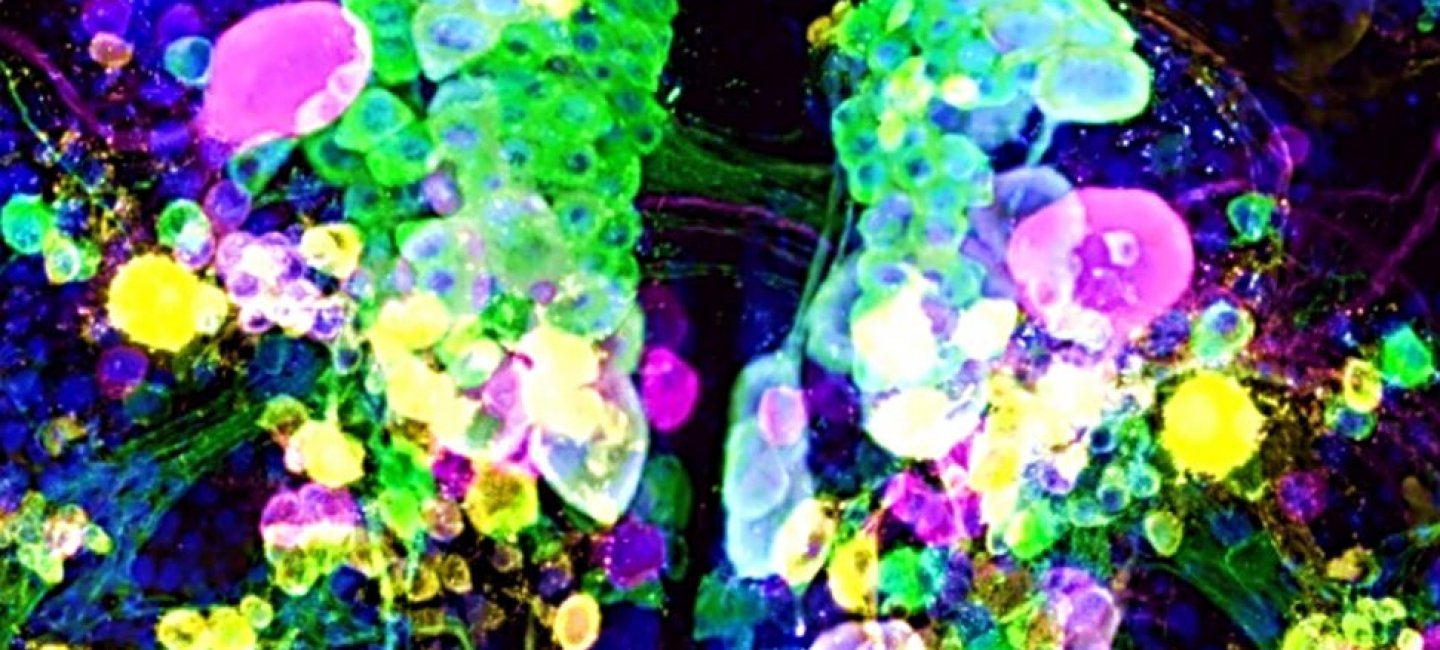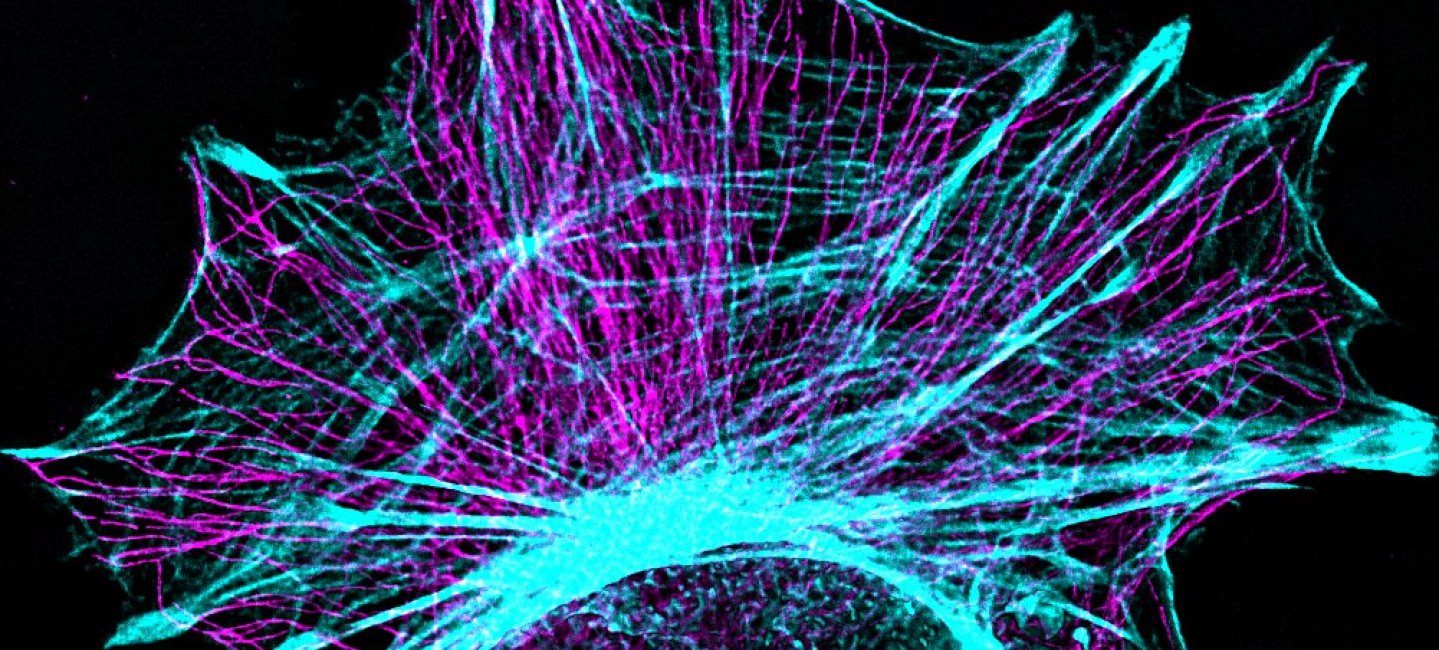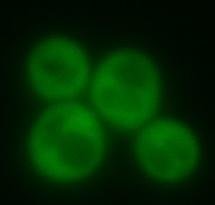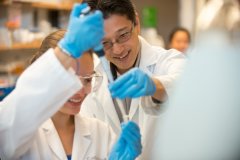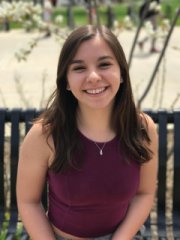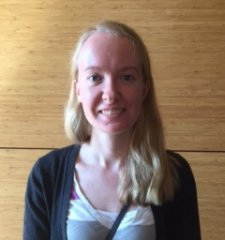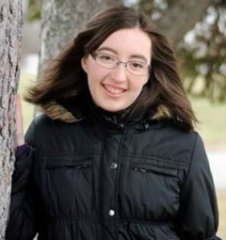News & Announcements
Unraveling One of Prion Disease’s Deadly Secrets
Unraveling One of Prion Disease’s Deadly Secrets
A molecular biologist at the University of Massachusetts Amherst who has for decades studied the nightmarish group of fatal diseases caused by prions – chronic wasting disease in deer, mad cow in cattle and its human analog – credits a middle-of-the-night dream for a crucial insight, a breakthrough she hopes could lead to a cure.
In a new paper in Nature Structural and Molecular Biology, Tricia Serio, dean of the College of Natural Sciences and professor of biochemistry and molecular biology at UMass Amherst, and others, report an unanticipated role for prion nucleation seeds that enhances their ability to appear and resist curing. Nucleation seeds are molecule clusters that form when prions attach to one another and change shape. “Once that change occurs, it creates a very stable aggregate known as amyloid that was thought to be impossible to inactivate by normal means,” Serio notes. “One key factor controlling the transition from harmless protein to invincible disease menace was so hidden and obscure that it had not been previously proposed,” she says. Read more
UMass Amherst Chemists Mobilize Quickly to Find Simple, ‘Smart Swab’ Detector for COVID By-products
UMass Amherst Chemists Mobilize Quickly to Find Simple, ‘Smart Swab’ Detector for COVID By-products
Three researchers in the chemistry department at the University of Massachusetts Amherst have teamed up to investigate whether they can develop a simple, color-changing test swab for COVID-19 in the next year that would alert users if their body carries a viral product left after infection.
To support the work, Sankaran "Thai" Thayumanavan, Jeanne Hardy and Trisha L. Andrew received a one-year, $198,000 RAPID grant from the National Science Foundation (NSF), designed to quickly fund promising approaches to an emergency. As NSF explains, RAPID supports proposals “having a severe urgency with regard to availability of, or access to data, facilities or specialized equipment, including quick-response research on natural or anthropogenic disasters and similar unanticipated events.” Read more
Whole Strawberries Studied for Their Anti-inflammatory Benefits
Whole Strawberries Studied for Their Anti-inflammatory Benefits
University of Massachusetts Amherst food scientist Hang Xiao has received a new federal grant to expand his research into the health benefits of certain fruits and vegetables; in this case, strawberries.
With a three-year, $500,000 grant from the National Institute of Food and Agriculture, Xiao and colleagues will aim to identify the mechanism by which whole strawberries affect the gut in positive ways. Findings from one of Xiao’s earlier studies suggested a strong scientific basis for using strawberries to support colon health and suppress or reduce or prevent inflammation of the colon.
Xiao and UMass Amherst colleagues David Sela, Guodong Zhang, and Zhenhua Liu theorize that the whole strawberry inhibits colon inflammation by alleviating an imbalance in the composition and function of gut microflora, which in turn restores a homeostatis in the colon. Read more
Computational Techniques Developed to Explore ‘The Dark Side of Amyloid Aggregation in the Brain’
Computational Techniques Developed to Explore ‘The Dark Side of Amyloid Aggregation in the Brain’
As physicians and families know too well, though Alzheimer’s disease has been intensely studied for decades, too much is still not known about molecular processes in the brain that cause it. Now researchers at the University of Massachusetts Amherst say new insights from analytic theory and molecular simulation techniques offer a better understanding of amyloid fibril growth and brain pathology.
As senior author Jianhan Chen notes, the “amyloid hypothesis” was promising – amyloid protein fibrils are a central feature in Alzheimer’s, Parkinson’s disease and other neurodegenerative diseases. “But the process is really difficult to study,” he says. “For many years people thought the fibril might be the harmful factor in the brain. But after billions of dollars of investment failed to deliver an Alzheimer’s drug, that thinking is really questioned. We now believe that the fibril is not the toxic species, but it’s the earlier forms, soluble oligomers or proto-fibrils. That’s what we wanted to study.” Details of their multi-scale approach with many atomistic simulations are in Proceedings of the National Academy of Sciences. Read more
Morita Lab Studies Glycolipid Biosynthesis as a Potential Drug Target
Morita Lab Studies Glycolipid Biosynthesis as a Potential Drug Target
Tuberculosis (TB) is a serious lung disease that is becoming increasingly difficult to treat with antibiotics due to the emergence of drug-resistant bacteria. Developing new drugs to treat TB is particularly challenging because the bacteria that cause the disease have impermeable cell walls that block antibiotics. The American Lung Association recently awarded Dr. Yasu Morita a grant to advance research to identify a protein involved in the production of glycolipids that can be targeted by new drugs. The project funded by this grant aims to prove that Spe2 is essential for the growth of TB bacteria and that it is located within the surface of the cell wall, making it an ideal drug target. Read more
Martin Lab Lands Major Massachusetts Tech Transfer Award
Martin Lab Lands Major Massachusetts Tech Transfer Award
The Craig Martin Lab in chemistry recently received an Acorn Award from the Massachusetts Technology Transfer Center (MTTC), one of 13 innovation seed-funding $15,000 grants given statewide intended “to support the demonstration of the viability of a technology developed at Massachusetts research universities.”
Martin and colleagues will work to advance what he calls “a wide variety of new RNA therapeutics that are on the horizon today,” such as mRNA-based therapeutics, RNA-guided technologies such as CRISPR and RNA “logic gate” smart therapeutics.
MTTC Acorn Awards are funded by the Commonwealth to enable public and private research universities and medical centers in the state “to lead the nation in translating basic research to the market, creating jobs and spurring economic development,” the organization states. Read more
UMass Amherst Scientists Prepare Sterile Solution for COVID-19 Tests
UMass Amherst Scientists Prepare Sterile Solution for COVID-19 Tests
Answering an urgent call for assistance from regional health care systems, a volunteer team of scientists at the University of Massachusetts Amherst is preparing, testing and delivering thousands of vials of viral transport media, a chemical solution needed for COVID-19 diagnostic testing. Their work is having a statewide impact.
A key team member is Barbara Osborne, distinguished professor of veterinary and animal sciences, who helped get the project off the ground by providing ingredients from her own lab. She continues to volunteer her time to aliquot, or measure and dispense the medium from a large container into tiny vials, a highly quantitative task being carried out in IALS’ Cell Culture Lab. “This is all being done in one place, and that really is critical for the quality control,” Osborne notes.
Adds James Chambers, director of the Light Microscopy and Cell Culture Core Facilities at IALS, who is overseeing the labeling of the vials, “Once the word got out to a few people that we were ramping up production this week, we were inundated with volunteers who want to do something to help with this fight.” Read more
Allyson Rosati MS Thesis Defense
Allyson Rosati MS Thesis Defense
Wednesday, April 22, 2020
2:00 pm
Zoom link: Please contact mcb@mcb.umass.edu to be included on the email list for this announcement
Thesis Title: "Sperm Mitochondrial DNA Biomarkers as a Measure of Male Fecundity and Overall Sperm Quality"
Advisor: Rick Pilsner
Amye Black PhD Dissertation Defense
Amye Black PhD Dissertation Defense
Friday, April 17, 2020
1:00 PM
Zoom link: Please contact mcb@mcb.umass.edu to be included on the email list for this announcement
Dissertation Title: "Inter-Individual Variation in Response to Estrogen and Implications for Breast Cancer Risk"
Advisor: Joe Jerry
Emily Houle MS Thesis Defense
Emily Houle MS Thesis Defense
Thursday, April 23, 2020
1:00 pm
Zoom link: Please contact mcb@mcb.umass.edu to be included on the email list for this announcement
Thesis Title: "Association Between Sperm DNA Methylation and Sperm Mitochondrial DNA Copy Number"
Advisor: Rick Pilsner
